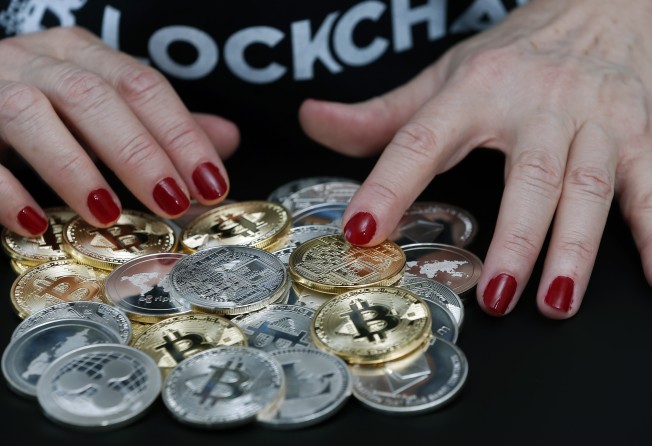
Stablecoins in Southeast Asia: the less volatile cryptocurrency is a boon for terrorist groups
- Despite the appeal of anonymity and ease of international fund transfers, large swings in value have made cryptocurrency unattractive to extremist and criminal networks
- But stablecoins, which have a value fixed against a certain asset, offer these groups an advantage – as does the widespread adoption of digital payments in Southeast Asia

Cryptocurrencies have become a convenient medium for the movement of funds due to the high degree of anonymity offered by blockchain-diffused ledgers, and the operational ease of fund transfers across continents – both of which have been exploited by terrorist and criminal networks, and even states such as North Korea.
Now, another form of cryptocurrencies – stablecoins – are making such illicit uses more viable, and raising regulators’ eyebrows.
In the past, the broad use of cryptocurrencies as a speculative tool resulted in volatility, making them unattractive to extremist organisations. The thinking went that such groups could not afford sudden swings in value, as this could affect planned operations or delay payments to fighters. The bitcoin trend over the past few weeks is a case in point.
In the space of a few days, the value of Bitcoins went on a roller-coaster ride, surging from US$20,000 to settle at close to US$40,000 last week, leaving investors who cashed in early muttering under their breath and regulators screaming for action.
Stablecoins, the value of which is fixed against a certain asset, are changing the rules of the game –they offer criminal and terrorist organisations all the advantages of cryptocurrency without the downside of volatility. Tether, which is designed to keep the value of each token pegged to US$1 and is issued by the eponymous Hong Kong-based company, is leading the pack.

Tether recently outpaced Bitcoin to become the world’s most-used cryptocurrency, and owes its rapid adoption to its advertised stability as well as its ease of use in cross-border transactions. This trend is also spreading to other cryptocurrencies: in late December, the New York State Department of Financial Services authorised Japanese internet giant GMO to issue, administer, and redeem Japanese yen and US dollar-pegged stablecoins in New York. There is little doubt that extremist organisations are taking note of these developments.
In August last year, the US Justice Department announced the dismantling of three terrorist financing cyber-enabled campaigns involving the al-Qassam Brigades, al-Qaeda, and Islamic State (Isis). Over 300 cryptocurrency accounts with a total value of several million dollars were seized, the largest-ever haul of terrorist organisations’ cryptocurrency.
The raid showcased how terrorist groups have increased their cyber proficiency in two critical areas: the use of social-media propaganda campaigns to raise cryptocurrency funds, and their access to exchanges that convert virtual currencies into cash without leaving a telltale signature. For example, since 2015, Islamic militants from the Middle East have sent money to Southeast Asia-based terror cells and explored the use of PayPal and Bitcoin. However, unsecured communications and the need to convert virtual money into cash have led to several arrests.
Virtual money also flows in reverse – from Southeast Asia to the Middle East – to finance extremist movements there. Malhama Tactical, the jihadist mercenary outfit which trains fighters for militant group Hayat Tahrir al-Sham in Syria, has received donations in Bitcoin from several charitable organisations. The group raised funds on platforms such as Telegram, Twitter, Facebook, YouTube, and Russian social-networking sites, and these were transferred through online payment services.

01:29
Forces fighting Islamic State in Iraq helping to bury coronavirus victims in mass graves
The spread of online guides and DIY manuals on using cryptocurrency exchanges is another troubling sign. These guides have been made available online from Middle Eastern sources, and Covid-19 provided a convenient cover: appeals for charity cloaked the real purpose of donations received. Several darknet sites also offered links so Isis and other terrorist organisations could get Bitcoin contributions from supporters anonymously.
Pro-Isis darknet sites such as Isradat provided propaganda materials and instructions on cryptocurrency funding, but accessing them required more than entry-level computer literacy. Hence, sending out do-it-yourself manuals played a key part in extremist groups’ attempts to raise crypto funding.
As such groups and states exploit the use of cryptocurrencies, Asia is likely to become a nexus for these efforts from the Middle East. Widespread Asian adoption of cryptocurrencies – fuelled by business start-ups, a large digital-savvy population, the popularity of e-payment channels, and lax regulation – make the region a natural choice for shady outfits.
Terrorist networks in Southeast Asia that carry out extensive fundraising efforts are a case in point. These efforts could grow to include stablecoins, given their rising popularity in the region thanks to high internet/smartphone penetration levels and the growing acceptance of e-payments. While Malaysia, the Philippines, and Thailand are updating their regulations to cope with the terror-related element of cryptocurrency, Indonesia and Vietnam have banned cryptocurrency activities, from mining to payments for goods and services. However, there are still blind spots in cryptocurrency exchange monitoring and regulation.
In order to cope with these threats from fast-evolving cryptocurrency, states need to rely on skilled manpower and AI-enabled anti-money-laundering tools. The cost associated with the development of a sound regulatory and monitoring system must be considered a small investment that will yield long-term dividends – namely a crisis appraisal and mitigation knowledge base, avoidance of monetary and reputational loss, promotion of public-private integration, and, most importantly, safeguarding growing financial sector e-commerce and e-trading services.
Dr Alessandro Arduino is Principal Research Fellow at the Middle East Institute at the National University of Singapore. His expertise includes unconventional warfare.